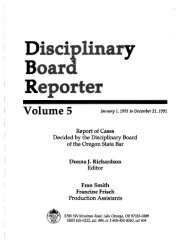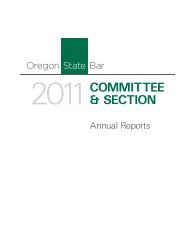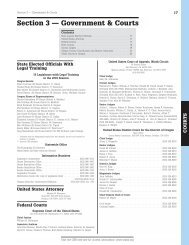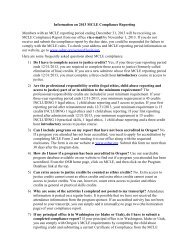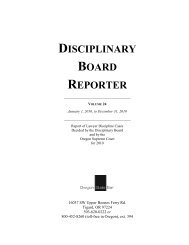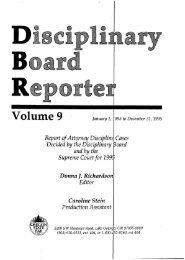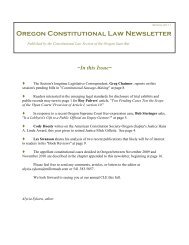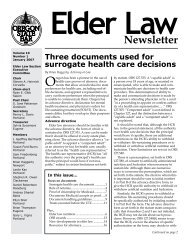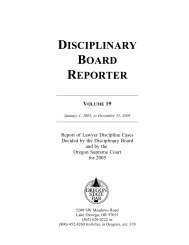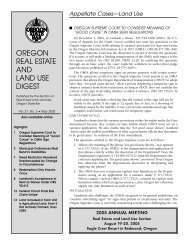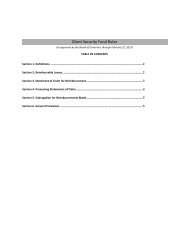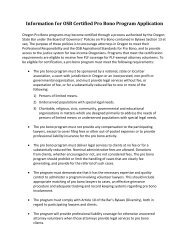February 22, 2013 - Oregon State Bar
February 22, 2013 - Oregon State Bar
February 22, 2013 - Oregon State Bar
You also want an ePaper? Increase the reach of your titles
YUMPU automatically turns print PDFs into web optimized ePapers that Google loves.
OREGON STATE BAR<br />
Board of Governors Agenda<br />
Meeting Date: <strong>February</strong> <strong>22</strong>, <strong>2013</strong><br />
From:<br />
David Wade, Chair, Governance and Strategic Planning Committee<br />
Re:<br />
Preference Polls for Circuit Court Appointments<br />
Action Recommended<br />
Approve the Governance and Strategic Planning Committee’s recommendation to<br />
resume conducting preference polls for circuit court appointments.<br />
Background<br />
Pursuant to OSB Bylaw 2.701, the bar conducts preference polls of judicial candidates<br />
for statewide and circuit court elections. Pursuant to Bylaw 2.702, preference polls for circuit<br />
court appointments are conducted only “at the request of the Governor of the <strong>State</strong> of <strong>Oregon</strong><br />
or the Board.”<br />
Since about 2005, neither the Governor nor the board has requested a poll for a circuit<br />
court appointment. Preference polls for appointments were eliminated at the same time that<br />
the BOG stopped ranking its recommendations for appellate court appointments, at the<br />
request of the then-Governor.<br />
In place of preference polls of bar members in the county/judicial district of the vacancy,<br />
the BOG has encouraged local bars to conduct an interview-based screening process similar to<br />
what the board uses for statewide judicial appointments. The Multnomah <strong>Bar</strong> Association’s<br />
judicial screening process is possibly the oldest most structured of the various county bar<br />
mechanisms. Lane and Washington Counties have similar processes, but many county bars do<br />
nothing formal in regard to the circuit court appointments.<br />
Preference polls are disfavored by some as being nothing more than “popularity<br />
contests.” Proponents counter that many (if not most) bar members take the polls seriously,<br />
making their selections based on their knowledge of the candidates and their assessment of the<br />
candidates’ respective qualifications. Particularly in counties that don’t have a screening<br />
process (or where the county bar’s screening process is perceived to be flawed), a preference<br />
poll can provide valuable information to the Governor and to the public.<br />
Preference polls are relatively easy and inexpensive for the bar to administer<br />
electronically and will not impose a significant burden on staff.



